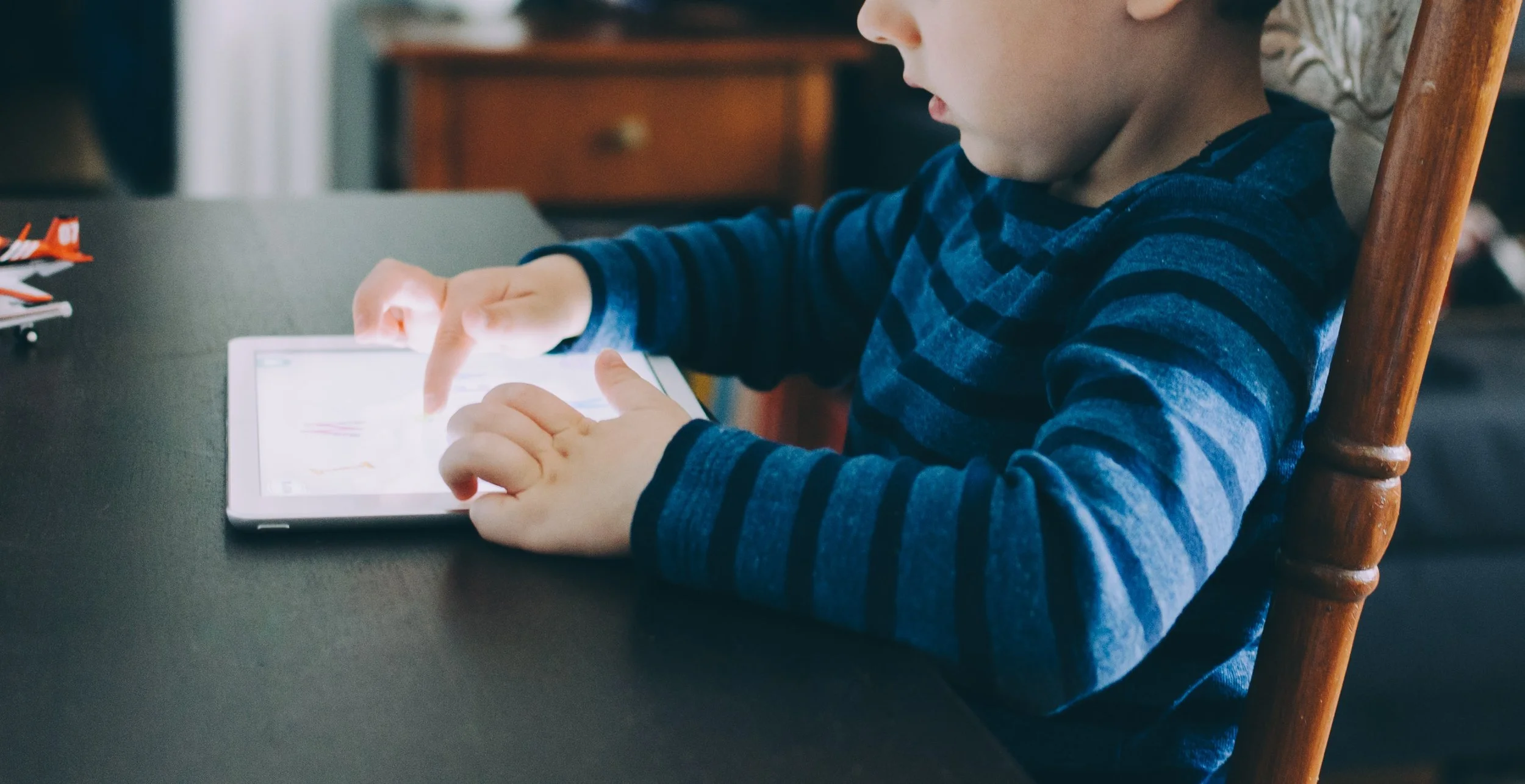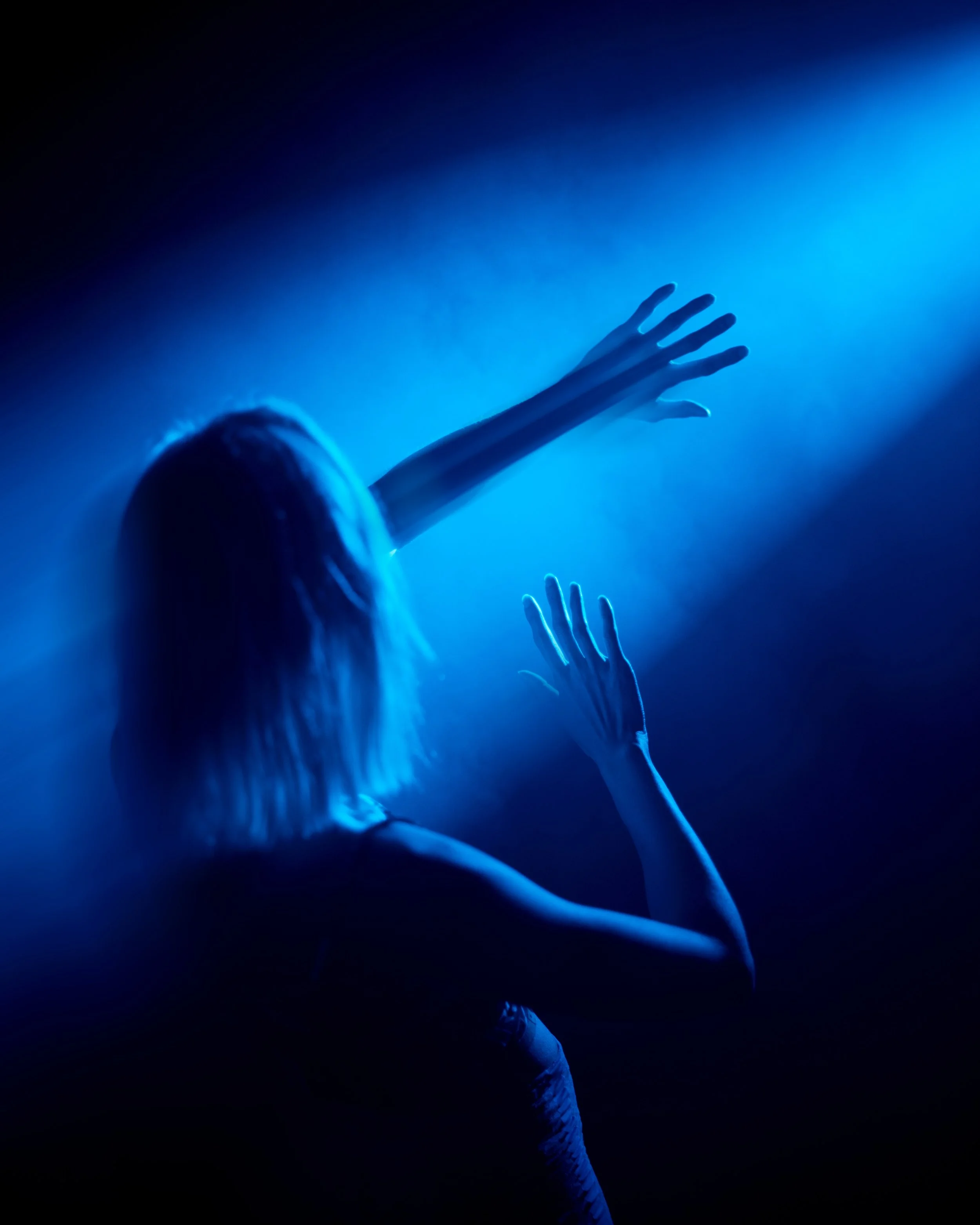In 2018, a new study came out that caused a sensation in media outlets worldwide:
“Blue light from phone screens accelerates blindness, study finds”
“Blue light emitted by smartphones and laptops accelerates blindness…”
The said study discovered that blue light kills photoreceptor cells in the retina. (These cells do not regenerate.) Over time, this results in macular degeneration—which is one of the leading causes of blindness.
This piece of research caused quite a scare. Alarmist headlines sent families trooping to optical shops.
Optical shops jumped at the opportunity and started selling lenses that filtered blue light. If you remember, 2018 was the year when parents started buying blue light-filtering glasses for themselves and their kids. Because no loving parent would want their kids to go blind.
“Screen time” was always a concern for parents, and the research on blue light only added to the reasons they limited device use by the kids.
So…the question: Does blue light from electronic devices harm your eyes?
The short answer is NO.
What Is Blue Light?
Blue light is generally defined as visible light ranging from 380 to 500 nm.
Blue light is a high-energy, short-wavelength light that is part of the visible light spectrum.
It is present in sunlight.
Artificial light sources such as LED lighting from computer screens, smartphones, and other digital devices also emit it.
It is known to boost mood and alertness as well as enhance attention and memory.
Taking A Closer Look At The Research
The researchers in this study took cells, put them in a petri dish, and exposed those cells to high levels of blue light.
And they observed that those cells died.
One of the flaws of that research is that the cells that they put in that petri dish were not even eye cells.
They were cervical cancer cells.
Our retina cells have pigments that protect us against blue light. They're called lutein and zeaxanthin. They're like our natural blue blockers, and they protect our eyes against blue light.
The purported study cannot be proof that blue light coming from electronic devices damages our eyes. It did not mimic shining blue light into living test subjects’ eyes, (which would be highly unethical). In short, the cells in the study were not exposed to light in the way cells in the eye are naturally exposed.
The second reason blue light from smartphones, tablets, and laptops cannot cause damage to the retina as suggested by the study is that the amount of blue light coming from these devices is very low.
In fact, the natural blue light from the sun far exceeds the amount from any one device. (Why is the sky blue?)
For example, recent iPhones have been measured to emit a maximum of 625 candelas per square meter. The sun, on any given day, can easily do 10 to 30 times more!
(Researchers measured the amount of blue light coming from gadgets. In order to do that, they had to block out all the natural light from the room. Otherwise, the blue light coming from a smartphone would not even register in their spectro-radiometers.)
And if blue light is that damaging to our eyes, we would have a pandemic of blindness because all of us are on devices all the time, both children and adults.
So there is no conclusive research to back the assertion that blue light can cause macular degeneration and permanent blindness.
This much has been said by luminaries at the American Academy of Opthalmology, Harvard Medical School, Wills Eye Hospital (America’s oldest eye hospital), and optical radiation experts from Oxford.
“Yeah? But why do my eyes hurt when staring at the screen?”
This is digital eye strain.
Staring at a screen for hours at a time, whether it’s at a computer, phone, or tablet, can lead to people blinking less. This causes dry eyes and eye strain.
Fortunately, this is not permanent and easily preventable.
Rest your eyes by looking at something else over a distance. The whole goal is just to allow your eyes to relax off into the distance, in order to relieve a little of that strain.
You may have heard of the 20/20/20 rule, which is every 20 minutes, take a 20-second break to look at something 20 feet away.
Do that and it will relieve your eyes.
But as for blue light making you blind? There’s no evidence to that effect.
It’s really more about selling blue light-filtering glasses. (Watch this video.)
What You Should Be Worried About?
That said, this does not mean that you or your kids have free reign in staring at computer screens all day long.
While blue light from phones and computers cannot cause blindness, it may have a different dark side.
Remember earlier we said that blue light is known to boost alertness?
Staring at your phone before going to sleep can disrupt your body’s circadian rhythm and sleep patterns. Studies have shown that blue light can affect sleep quality and duration. It’s said to suppress the release of melatonin, which is a substance that makes us feel drowsy.
Blue light is helpful during the day, keeping you alert and awake. It’s not so useful at night when you need to get your Zzzs and rest.
Besides flooding your body with adrenaline, watching an episode (or four) of your favorite drama/series to help you sleep just might backfire. Blue light is the culprit.
This is when blue light-filtering glasses or “night mode” features come in handy. They prevent blue light from messing up your sleeping patterns.
And for parents, even if blue light cannot cause blindness or even if kids are using blue light-filtering glasses, there are still a lot of reasons why parents need to limit “screen time.”
This is not just about eye strain or dry eyes. Too much time on gadgets can lead to psychosocial and emotional issues. By having their attention plastered on phones and computers, kids are spending less time with the family. They are not communicating face-to-face and creating lasting bonds. They’re not involved in enough outdoor, physical activity.
So instead of fearing blue light from devices, why not expose your kids to the largest source of blue light: the sun? Take them out and play. Teach them what kids their age used to do before phones and apps came to the scene.
They probably have not experienced the bliss of tumbang preso or patintero…
BloodWorks Lab is your family’s partner in health and well-being. We offer checkups that are tailored to you and your family’s needs.
As a premier medical testing outfit, we are your one-stop shop for a broad range of blood tests, medical screenings, and assessments.
We are also proud to be the first in the country to introduce the Anti Acetylcholine Receptor (lgG) Antibody Test and the Anti N-Methyl-D-Aspartate Receptor (Anti NMDA Receptor) Antibody Test.
Book your appointment today.
Our branches are in Alabang, Katipunan, and Cebu.






